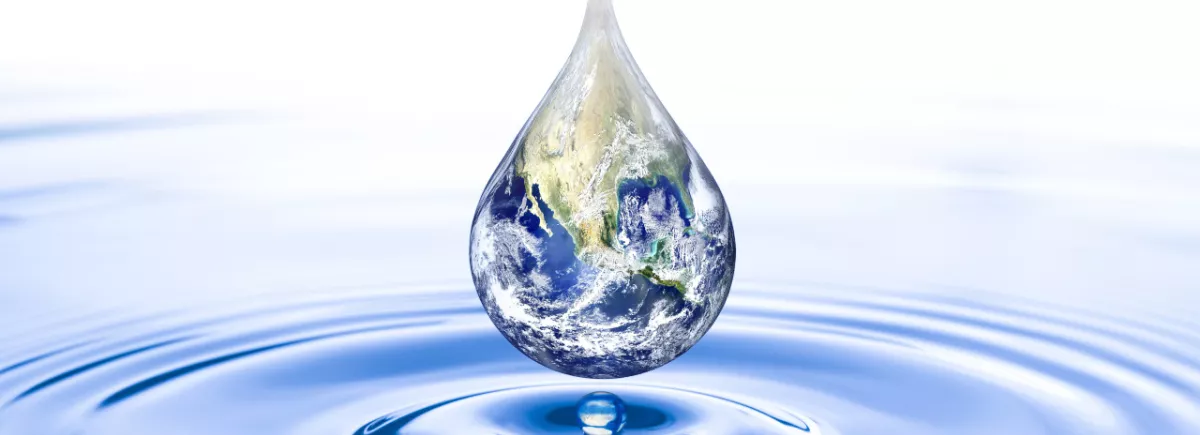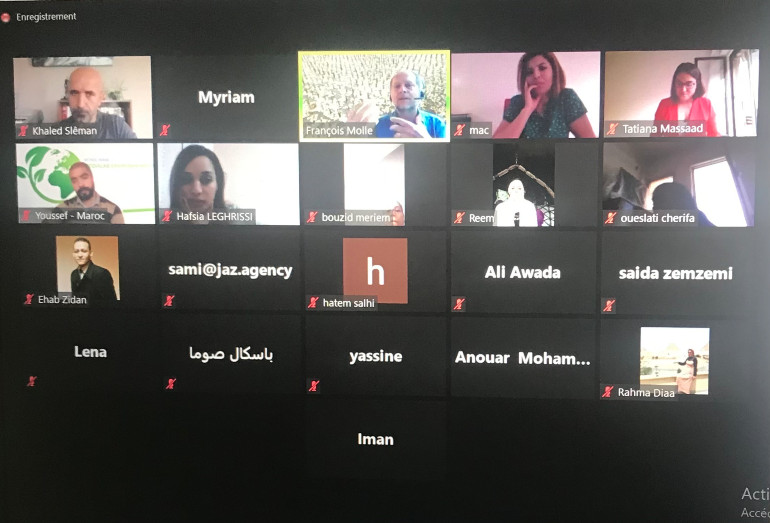
Workshops to raise journalists’ awareness of water issues in the Southern Mediterranean
Related project
MediaLab EnvironmentIn late May, some 15 journalists from Morocco, Algeria, Tunisia, Egypt, Lebanon and Jordan took part in two online workshops on water issues in the Middle East and North Africa (MENA). These workshops were organised by CFI in collaboration with the French National Research Institute for Sustainable Development (IRD). A third workshop is scheduled to take place on 11 June 2021.
Over the last few decades, we have been witnessing a very sharp decline of between 10 and 30% in water stocks available in countries that surround the Mediterranean Sea. And yet, demand for water is continually on the rise, which will likely lead to repeat crises, states François Molle, a researcher at the IRD who specialises in water management. Water scarcity is one of the major challenges facing Southern Mediterranean countries and this will continue to be the case. ...a very sharp decline in water stocks available ... It will continue to impact the lives of people in these countries in a number of ways. Coverage of water-related problems within the media poses a real democratic challenge for these countries.
As part of the MediaLab Environment project, CFI is organising three workshops in partnership with the IRD to raise awareness among journalists from Morocco, Algeria, Tunisia, Egypt, Lebanon and Jordan of the challenges related to water stocks in the MENA region and to enhance their knowledge so that they can cover this topic more effectively. Five IRD researchers are attending these workshops led by France 24 journalist Tatiana Massaad.
Gaining a better understanding of water-related conflicts
Some 15 journalists took part in the first two workshops held on 28 May and 4 June. During the first of these, physicist and IRD researcher Vincent Simonneaux described the work of the TREMA Joint International Laboratory and the International Centre for Sustainability Sciences, and explained what in situ observation methods and spatial remote sensing could mean in terms of studying the water cycle in the semi-arid Mediterranean with a view to sustainably managing water stocks.
During the second workshop, François Molle used several examples taken from the six target countries of the MediaLab Environment project to speak about water management. Via his presentation, he sought to explain why water is scarce in the region by stressing the importance of political choices made with respect to water infrastructure and the use and monitoring of groundwater.
Egyptian journalist Ehab Zidan believes this meeting gave him a better understanding of what drives water-related conflicts in the region, including the aspects of population growth, climate change and water management. He added that, after the workshop was over, he began to consider new ways to approach his next reports on water issues in the region.

These meetings also promote networking between journalists and experts. This process of reflection will continue during the workshop on 11 June, which will focus on helping journalists decipher the water management solutions proposed by scientists to decision-makers.
"It is important to increase the number of initiatives bringing together scientists and journalists because journalists can deliver a higher standard of news if they interact with the academic world. This has only become more true since the COVID-19 crisis began."
Hafsia Leghrissi, workshop attendee and PhD student at INAT (National Agronomic Institute of Tunisia)


